“African American Slave Testimonies and Photographs” has been added to your cart. View cart
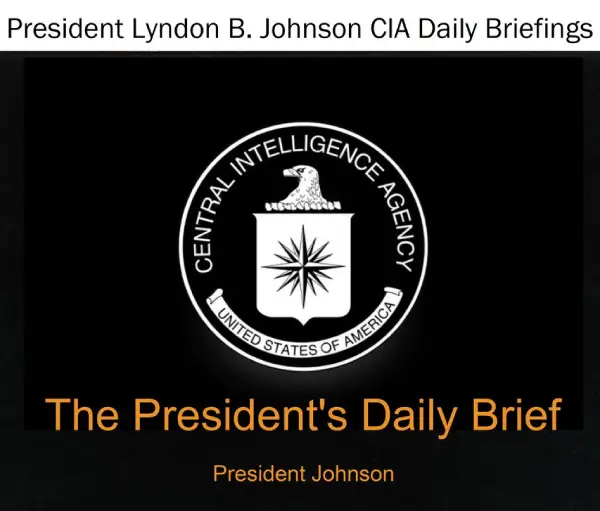
President Lyndon B. Johnson – CIA Daily Briefings
$19.50
Category: Historical Files
Tags: CIA, LBJ, Lyndon B. Johnson
Description
LBJ’s Daily Briefings: A Presidential Timeline of Crises
November 22, 1963:
- President John F. Kennedy is assassinated. Lyndon B. Johnson becomes President.
- President Johnson reads his first President’s Daily Brief (PDB) (then called a President’s Intelligence Checklist – PICL), a format previously withheld from him as Vice President.
- The PDB for this day includes a poem by Domingo Ortega, quoted by President Kennedy.
- Intelligence reports indicate Vietnamese Communist efforts to discredit the new Saigon regime are intensifying.
November 25, 1963:
- Intelligence confirms Lee Harvey Oswald visited Mexico City on September 28, 1963, attempting to arrange visas at the Cuban and Soviet embassies to travel to the USSR via Havana. He returned to the U.S. on October 3.
February 1964:
- Guantanamo Water Crisis occurs.
August 3, 1964:
- North Vietnam attacks the USS Maddox in the Gulf of Tonkin. Intelligence indicates the attack was planned and directed by naval authorities ashore, noting Hanoi’s increased sensitivity to U.S. and South Vietnamese activities in the area.
August 1964:
- Gulf of Tonkin attacks are a major event covered in the briefings.
October 17, 1964:
- China conducts its first nuclear test. The announcement attributes the success to China’s own scientists, without acknowledging any Soviet contribution.
November 17, 1964:
- The President’s Intelligence Checklist (PICL) format is officially changed to President’s Daily Brief (PDB), reflecting President Johnson’s desired modifications.
1964-1967:
- Cyprus Crisis is a recurring topic in the briefings.
1965:
- Dominican Crisis occurs.
July 1965:
- Deployment of major U.S. forces to Vietnam begins.
February 6-8, 1966:
- Honolulu Conference takes place.
August 1966 – February 1967:
- Indian Famine is a significant concern covered in the briefings.
October 17 – November 2, 1966:
- Manila Conference and President Johnson’s Asian Trip occur.
1966-1967:
- Trilateral Negotiations and NATO are covered in the briefings.
April 1967:
- OAS Summit Meeting takes place.
April – June 1967:
- The Kennedy Round of GATT negotiations occurs.
May 12 – June 19, 1967:
- Middle East Crisis (Six-Day War) takes place.
June 5-6, 1967:
- The Six-Day War continues despite a UN ceasefire resolution. Israeli planes are reported to be striking Jordanian positions outside Jerusalem, with some firing also occurring within the city overnight.
July 1967:
- Congo C-130 Crisis occurs.
November 1967 – March 1968:
- Gold Crisis involving private gold buying by hoarders is discussed.
January 31 – February 1, 1968:
- The Tet Offensive begins. Most enemy forces in Saigon are routed by noon, with Allied forces moving against remaining pockets of resistance. Communist forces remain entrenched in Kontum, Ban Me Thuot, and a regimental-sized force controls part of Hue in northern South Vietnam.
February 5, 1968:
- A “Special Daily Report on North Vietnam for the President’s Eyes Only” states that Hanoi portrays the Tet Offensive as a “spontaneous popular uprising” aiming to overthrow the Saigon government, downplaying the Liberation Front’s direct role. North Vietnamese propaganda claims new, broadly based organizations will, with the Front, establish a coalition government, urging popular support. The report includes a North Vietnamese broadcast quote suggesting “President Johnson could not eat and sleep properly. He was confused as the man in the moon.”
March 31, 1968:
- President Johnson delivers a speech announcing his decision not to seek re-election. This speech and his remarks are covered in the briefings.
1968:
- Pueblo Crisis occurs.
- 1968 Balance of Payments Program is a significant topic.
August 21, 1968:
- Soviet and other Eastern European forces invade Czechoslovakia, occupying Prague and other major centers through a well-coordinated air and overland operation.
January 20, 1969:
- The period covered by the CIA Daily Briefings for President Lyndon B. Johnson concludes.
July 2000:
- CIA Director George Tenet states that no PDB should be released, regardless of age or historical significance.
April 8, 2004:
- National Security Advisor Condoleezza Rice testifies about a PDB from August 6, 2001, titled “Bin Ladin Determined to Strike in US.”
April 10, 2004:
- President George W. Bush orders the release of the August 6, 2001 PDB.
2015:
- The CIA begins declassifying presidential daily briefings from the 1960s and 1970s.
Cast of Characters
- Lyndon B. Johnson (LBJ): President of the United States from November 22, 1963, to January 20, 1969. The recipient of the 13,564 pages of CIA daily briefings covered in the sources. He requested changes to the briefing format, leading to the creation of the President’s Daily Brief (PDB). His presidency was dominated by the Vietnam War and significant domestic issues.
- John F. Kennedy (JFK): President of the United States until his assassination on November 22, 1963. He was the initial recipient of the President’s Intelligence Checklists (PICLs) and, under his instruction, these briefings were not shared with then-Vice President Johnson. He is quoted with a poem from Domingo Ortega in the November 22, 1963 briefing.
- Lee Harvey Oswald: The individual identified as the assassin of President John F. Kennedy. The November 25, 1963, briefing confirms his visit to Mexico City in September 1963, where he sought visas at the Cuban and Soviet embassies to travel to the USSR via Havana.
- Bromley Smith: Kennedy’s intelligence assistant. He was responsible for the instruction that the PICLs provided to JFK were not to be shared with Vice President Johnson.
- Domingo Ortega: A Spanish matador. A poem by him was quoted by President Kennedy and included in the November 22, 1963, briefing, the day of Kennedy’s assassination.
- George Tenet: CIA Director in July 2000. He stated that no PDB should be released, “no matter how old or historically significant it may be.”
- Condoleezza Rice: National Security Advisor in April 2004. She testified before the National Commission on Terrorist Attacks upon the United States regarding a PDB from August 6, 2001, titled “Bin Ladin Determined to Strike in US.”
- George W. Bush: President of the United States in April 2004. Two days after Condoleezza Rice’s testimony, he ordered the release of the August 6, 2001 PDB.
- John L. Helgerson: Former CIA Inspector General. He described the PDB as “probably the world’s smallest circulation, most highly classified, and in some respects, best informed daily newspaper.”
Implied/Collective Characters (representing groups mentioned in the briefings):
- Vietnamese Communists: Refers to the political and military forces in Vietnam opposing the Saigon government, including those responsible for efforts to discredit the new Saigon regime and planning the attack on the USS Maddox.
- North Vietnamese Naval Authorities: Specifically mentioned as planning and directing the attack on the USS Maddox in August 1964.
- Chinese Scientists: Credited by the Chinese government for the success of their first nuclear test in October 1964.
- Israeli Planes/Forces: Actively engaged in attacking Jordanian positions during the Six-Day War in June 1967.
- Jordanian Positions/Forces: Targeted by Israeli forces during the Six-Day War in June 1967.
- Enemy Forces (Tet Offensive): Refers to the Communist forces (Viet Cong and North Vietnamese Army) involved in the Tet Offensive in January-February 1968.
- Allied Forces (Tet Offensive): Refers to the U.S. and South Vietnamese forces countering the Tet Offensive.
- Soviet and Other Eastern European Forces: Invaded Czechoslovakia in August 1968.
- Hoarders (Gold Crisis): Private individuals involved in buying gold, contributing to the Gold Crisis of 1967-1968
Related products
-
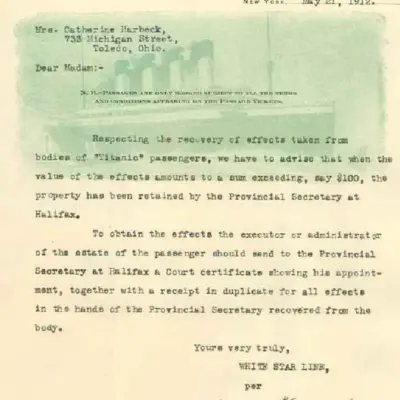
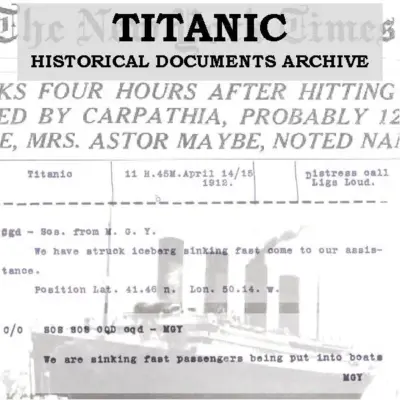
Titanic Disaster Historical Documents Archive
$29.90 Add to Cart -
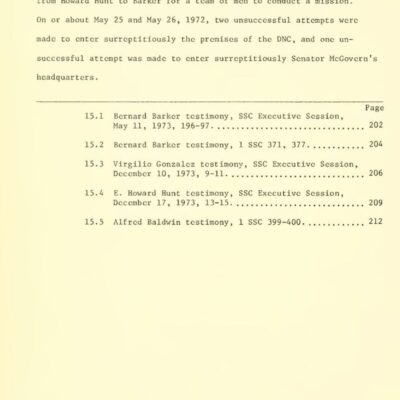
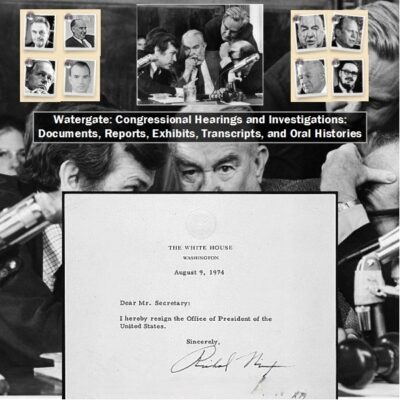
Watergate: Congressional hearings, reports, exhibits, and transcripts
$19.50 Add to Cart -
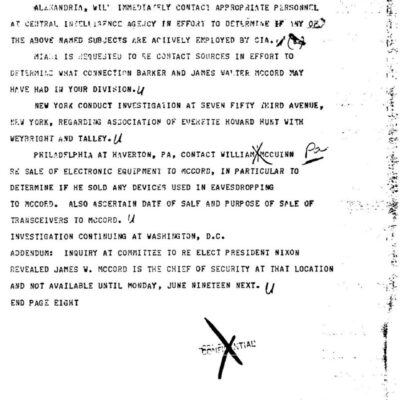
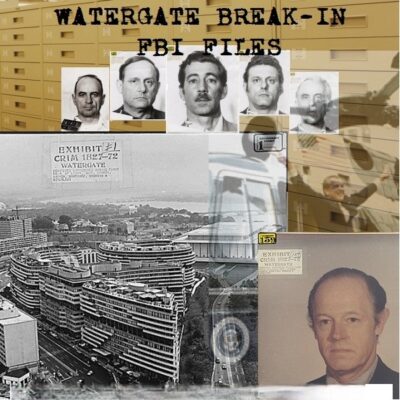
Watergate Break-in Investigation FBI Files
$19.50 Add to Cart -
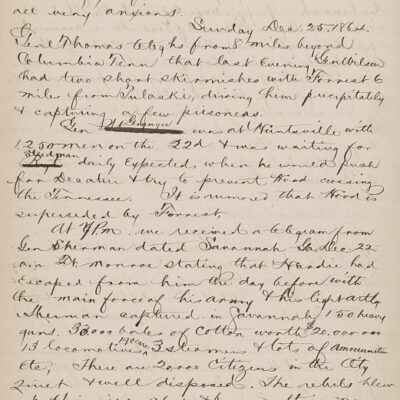
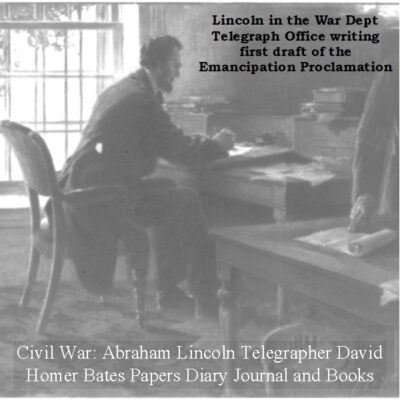
Abraham Lincoln’s Telegrapher David Homer Bates: Papers, Diary, and Books
$19.50 Add to Cart